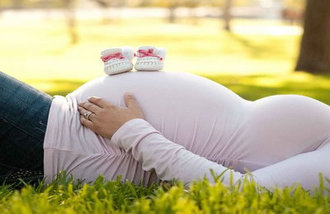In this article, we will explore the intricate relationship between a woman’s age and her fertility. Whether you’re planning to start a family or simply want to understand the biological clock better, this information will be invaluable. So, let’s dive right in!
The Impact of Age on Fertility: Explained
Age plays a significant role in a woman’s reproductive capabilities. As women age, their fertility naturally declines due to various biological factors. It’s crucial for women to be aware of these changes to make informed decisions about family planning. Let’s take a closer look at how age impacts fertility at different stages of life.
Fertility in the 20s: The Prime Time
Fertility in your 20s is often referred to as the prime time for conceiving. During this decade, women typically experience optimal fertility levels. The chances of getting pregnant are higher, and the risk of pregnancy complications is relatively low. The quality and quantity of eggs are at their peak, increasing the likelihood of successful conception. It’s an ideal time to embark on the journey of motherhood for those who are ready.
Fertility in the 30s: A Gradual Decline
Fertility in your 30s witnesses a gradual decline, but many women still have a good chance of conceiving. However, the decline becomes more noticeable compared to the 20s. One of the primary reasons for this decline is the decrease in the number of viable eggs. Additionally, the quality of eggs may diminish, leading to an increased risk of chromosomal abnormalities. Women in their 30s should be mindful of the biological clock and consider seeking medical advice if they encounter difficulties conceiving.
Fertility in the 40s: The Final Stretch
Fertility in your 40s is characterized by a significant decline. By this age, the quantity and quality of eggs have diminished considerably. The chances of conceiving naturally become quite slim, and the risk of infertility and pregnancy complications, such as miscarriage, increases substantially. However, it’s essential to remember that every woman’s fertility journey is unique, and some women may still conceive naturally in their 40s. It’s advisable to consult with a fertility specialist to discuss options and explore alternatives.
FAQs: What Every Woman Should Know
Now, let’s address some common questions related to the impact of age on fertility:
FAQ 1: Does fertility abruptly decline after a specific age?
No, fertility does not abruptly decline after a specific age. It’s a gradual process that varies from woman to woman. While there is a general trend of declining fertility with age, individual factors, such as overall health and genetics, also play a significant role.
FAQ 2: Can lifestyle choices affect fertility?
Yes, certain lifestyle choices can impact fertility. Factors like smoking, excessive alcohol consumption, poor diet, and stress can adversely affect reproductive health. It’s crucial to maintain a healthy lifestyle and consider making positive changes if you’re planning to conceive.
FAQ 3: Can medical interventions help overcome age-related fertility challenges?
Yes, medical interventions, such as fertility treatments like in vitro fertilization (IVF), can assist in overcoming age-related fertility challenges. These treatments offer hope to women who are struggling to conceive due to age-related factors.
FAQ 4: Is there an optimal age to start trying for a baby?
There is no one-size-fits-all answer to this question. The optimal age to start trying for a baby depends on personal circumstances and preferences. However, it’s generally recommended to consider family planning earlier, especially for those who wish to have multiple children or have a family history of fertility challenges.
FAQ 5: Are there any natural ways to boost fertility?
While there are no guarantees, certain lifestyle changes can potentially boost fertility. Maintaining a healthy weight, eating a balanced diet, exercising regularly, and managing stress levels can contribute positively to reproductive health.
FAQ 6: Is freezing eggs a viable option for preserving fertility?
Yes, freezing eggs can be a viable option for preserving fertility. This technique, known as oocyte cryopreservation, allows women to freeze their eggs at a younger age when fertility is at its peak. Later in life, these eggs can be thawed, fertilized, and used for pregnancy through assisted reproductive technologies.
Conclusion
Understanding the impact of age on fertility is crucial for every woman. As age advances, fertility naturally declines, and the chances of conceiving become more challenging. It’s essential to be aware of these changes and make informed decisions regarding family planning. Seeking professional advice from a fertility specialist can provide valuable insights and guidance tailored to individual circumstances. Remember, every woman’s fertility journey is unique, and there are options available for those who wish to start or expand their families.
